Can They Make it in the Uber-Competitive Medical Device Industry?
Millennials.
They don’t buy American beer. They don’t play golf. They help others in need. They save more money than their predecessors. They aspire to a work-life balance.
Shhh, don’t tell anyone, but sometimes in the Med Device Industry, there is NO work-life balance.
Gen-Y, the upscale word for “millennials”, is impossible to ignore.
They are the largest population in the U.S. and get bashed, more so than other generations prior. “Millennials” or “Gen-Y” often equates to a slew of words including:
- Arrogant
- Narcissistic
- Entitled
Let’s not forget “selfie”. There’s a constant debate whether these points are true, but what is true, is that millennials make up the majority of the U.S. work force. Which means, it’s just a matter of time before they make up the majority of your sales team, if they don’t already…
By 2025, they’ll make up 75% of it. It’s critical to understand who millennials are and how they think to recruit top talent to the medical device industry.
Which leaves two choices. You can continue to judge millennials, or you can focus on their strengths, of which they have many.
I know, I know… many of you sales managers out there have gotten very accustomed to the sales teams you’ve had in the past that had the mentality of kick a** and take names, but if you don’t embrace this group of up and comers you will find yourself on the outside looking in.
Think about it, these shapers of our culture are all millennials:
- Mark Zuckerburg – Creator of FaceBook
- Brian Chesky – Founder of Airbnb
- Matthew Mullenweg – Creator of WordPress
- Jessica Alba – Creator of the Honest Company
- Adam D’ Angelo – Founder of Quora
And the list could go on.
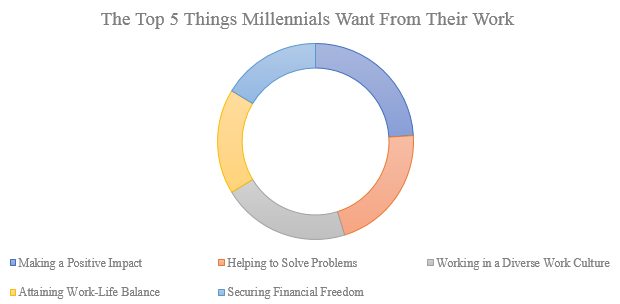
There’s a power in not settling for the status quo of how things have been run in previous generations, for not accepting anything but a workplace meritocracy, a stimulating environment where la crème de la crème of ideas win.
Medical Sales is Ideal for the Millennial Lifestyle (to a degree…)
The medical device industry isn’t for everyone. You don’t get to hit snooze three times before dragging yourself to work to clock in at nine, just to stare at the clock for the next eight hours. You must be sharp, have self-motivation to devour the day and bring solutions to your clients, even before they know they need them.
It’s stressful and there’s a high chance of turnover. On the same token, it’s the ultimate meritocracy – a work environment where the talented are chosen and advanced based on achievement.
You can’t fake numbers. You can’t fake cultivating authentic relationships with medical staff. Nor can you fake bringing value to physicians and nurses with the newest technologies on the market that can help them and their patients.
For some, a lucrative and equally competitive industry serves as motivation to push the envelope. The reward is work autonomy, making great money {far more than their peers with the same level of education in other industries} and living an entrepreneurial lifestyle.
Status.
Freedom.
Money.
Who wouldn’t want that?
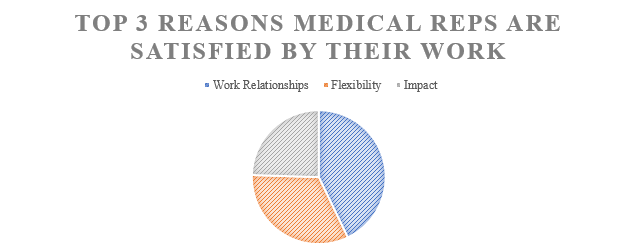
Not everyone makes it as a medical device sales rep. Most crack under pressure and fail to deliver. But, the ones that do, reap significant rewards.
Do millennials have what it takes to make it in the medical device industry?
Yes! I think they can thrive, as the med device industry is a culture and way of life that parallels what they are looking for in their work.
Here are eight reasons why:
1: THEIR PRODUCTIVITY INCREASES WITH A “FLEX” SCHEDULE
Gen-Y wants to slay the 9-5 mentality.
The argument is: flexible hours increases productivity, incentive and job satisfaction. It’s estimated that in the next decade, the 9-5 approach may be eradicated entirely.
Over 75% of millennials want flexible hours, something that is completely possible in the career of medical sales. Although a demanding industry, you have the power to dictate your hours. In fact, medical sales reps admit flexibility is one of the highest perks of their career.

You may have to get up at 5am and work throughout the day – on and off – until midnight, but the work autonomy is worth its weight in gold. You can make that yoga class and carve out time to catch up with an old friend over lunch.
Millennials know not to take work autonomy for granted, they know it’s okay for the lines that divide “life” and “work” to blend, and they feel comfortable when it happens because it’s up to their disposal when to shift from work back to personal time.
2: THEY SUFFER FROM WANDERLUST & TRAVELING A TERRITORY IS PART OF THE MEDICAL DEVICE INDUSTRY

As I’ve mentioned, millennials are allergic to cubicles, in fact, they travel more than any other generation. I’m kind of jealous to be honest…
Coincidentally, travel is fundamental in the medical device industry. Being out in the field is more common than being in the office. Truth be told, in all my years in the device business I don’t think I really had a ‘real’ office. The office is more of a place to check back in than to get the weight of your work done.
Traveling is inevitable in the medical device industry, especially if you want to be a top performer.
The numbers speak for themselves, the more a medical sales rep travels, the more they make. The highest earning medical sales reps travel 75% of the time.
Whether it’s visiting local hospitals and doctor’s offices – or hopping on a plane to meet a client five states over – it’s not stagnant work. Reps can dictate how much they want to travel, ultimately finding their specific balance between “income” and being present at home with their families.
3: MONEY MATTERS, BUT HAPPINESS TAKES THE CAKE
Millennials need money. They want money. To pay bills. To travel. To buy organic food.
This is great, because the medical device industry is a lucrative field. A sales rep can earn $100,000 on average, and there are many that make far more than that.
Millennials value happiness more than money. We’ve all said we would “cut back on work” to be home more and value our happiness, but these people LIVE by that thought process.
Nearly 80% of millennials would rather enjoy what they do than receive a heftier paycheck. And in the realm of work, happiness and enjoyment comes in the form of work-life balance. When millennials have work-life balance, they feel satisfied.
When millennials feel satisfied, they are productive and innovative.
This also aligns with the industry, because the power of this industry is that you can control your input. You dictate your own equation of what work-life balance looks like to you.
What a medical device rep gets out is what they put in, it’s an entrepreneurial way of life.

If they want to work 18 hours a day for that fatter paycheck, it’s within their control and it’s their decision. They get to decide their individual balance that fosters their happiness.
4: THEY WANT TO MAKE AN IMPACT & CAN DO SO BY ADVANCING IN THE MEDICAL WORLD
Making an impact.
It made number 3 on the reasons why medical sales reps enjoy their work.
It’s also a top outcome that millennials desire from their work.
In the medical device industry, they can make an impact by allowing patients access to better technology for their treatments, from patients suffering from a headache to those suffering from stage four cancer, and all patients in between.
Medical sales reps believe in the products they represent because they:
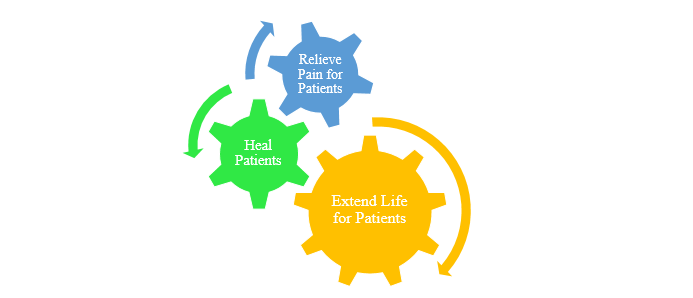
Millennials want to make an impact and they can do so through the products and expertise they offer physicians.
Gen-Y wants to feel as if they have a purpose in the cutting edge, as well as give back. They want to know and feel that what they are doing matters in the world and is bettering at least one person.
What better way to do so than with medical technology?
5: THEY THOROUGHLY ENJOY COLLABORATING
Millennials are seeking out workplaces that honor collaboration. It’s on their list of top ten things they want in a work environment.
The medical device industry is built on collaboration with leading physicians, surgeons and nurses of all specialties. These medical leaders and medical sales reps are ultimately working together to improve the patient experience, surgery, etc.
In many sales and clinical positions in med device today, the reps play a critical role and are looked at as “part of the team” when treating patients. How about that for collaboration?
It’s about meeting with leading medical professionals and figuring out a way to enhance their practices and what they offer. It’s being part of a team that is offering cutting-edge equipment to progress the medical world.
6: THEY FOSTER WORK RELATIONSHIPS

It’s no coincidence that medical sales reps report that the relationships they cultivate with their clients and with the patients they serve is the number one reason they love what they do.
The need for relationships is in our DNA.
Millennials know the power of authenticity when it comes to working relationships. They won’t just take your material product and go sell it door to door at physician’s offices. Millennials are more likely to sell your mission and to believe in the product they are offering their customers.
Product knowledge and being informed prior to a purchase is key to Gen-Y. They will know your product, they will be prepared to answer any questions from potential prospects, not in an aggressive “greasy sales guy” type of way, but in an “I’m offering your practice value” way.
Millennials put the spotlight on people, not the cut on commission that is going to hit their account. Trust me, when it’s the other way around, meaning commission is first on your mind, it’s obvious to your customer and a big turn off to them.
The authenticity millenials cultivate in their working relationships and friendships has shown to increase their productivity.
It’s this type of mindset that leads to excelling in the medical device industry.
7: THEY WELCOME FEEDBACK FROM THEIR HIGHER UPS
As a medical sales rep, your manager will always give you feedback to how you are ranking in your territory.
This constant flux of feedback drives millennials to give their absolute best. Don’t confuse feedback for admiration, that’s not what it’s about. Gen-Y wants to keep tabs on the score, they want to know how they are doing and how to improve. Over 70% of millennials are satisfied with their work when they receive frequent feedback.
SALES MANAGERS! WE’RE TALKING DIRECTLY TO YOU: WHEN WE SAY FEEDBACK, WE’RE NOT TALKING MICRO-MANAGEMENT OR BELITTLING. WE’RE TALKING ABOUT BEING A LEADER, A COACH, A MENTOR. MILLENNIALS ARE VERY COACH-ABLE.

What I mean is, Gen-Y is loyal to a place of work where a sense of rapport exists enough that there is that open sense of communication and transparency.
In medical sales, you won’t always see your boss in the office, it’s heavily built on text and email communication – because of the distance between management and sales reps. This e-feedback works for millennials as they are accustomed to check in and reply via text and email.
8: THEY HAVE TECHNOLOGICAL PROWESS & THEY KNOW THE POWER IT HOLDS

Millennials adapt to new technology twice as fast as others. That comes as little surprise, as they grew up with technology at their (literal) fingertips. They also know that data doesn’t lie. Selling to them is a science, with a specific working equation, evident in data.
Gen-Y knows that most emails are read at a specific time, under a specific word count, with a specific subject line and format to the message. The point is, they follow the research trends and apply what works to prospective leads – they aren’t picking processes out of a hat.
Before meeting with a potential customer, a millennial has seen their LinkedIn, Twitter, Facebook, Quora, etc. and understands their personal vibe and philosophy.
Any millennial knows that before meeting with a client, the prospect has also checked them out online as well as the product they are interested in. And they’re right, greater than 50% of a prospective clients decision is made by hopping on google and scoping out the scene, before a face-to-face meeting.
Millennials understand the power of branding LinkedIn and Twitter consistently to further drive the value that they offer in terms of what they do and why they do it. Selling themselves socially comes as second nature to Gen-Y.
In the medical device industry, a physician has checked out the company, rep and whatever research there is on the new device, before the rep appears at their office with a suitcase and a dozen bagels.
It helps to have a consistently branded social media stream, as it strengthens first impressions even prior to the first face-to-face meeting. Social Media and information doesn’t intimidate Gen-Y. It’s clear that they use their technological savvy to their advantage.
The bottom line is this: all the tools you’ve been trying to get your reps to use for years… millennials will use them, but only if they are valuable to their business.
They understand data and crave more of it, but in the fast-paced world of med device, the company needs to catch up to the millennials. Companies cannot continue delivering data and expecting data in old, dinosaur-esque files like Excel and CSV.
Those tools are fine if you spend 90% of your work time behind a desk, but that isn’t the reality for most of your reps.
THE TAKEAWAY? URGE MILLENNIALS TO GET ON BOARD
Foster a work environment that appeals to the millennial mindset and they will be inspired to offer priceless ideas that can take your operation to the next level.
If you can offer Gen-Y the opportunity to make an impact, to find a sense of purpose, reasonable pay and the freedom for them find a healthy work-life balance, then you are on your way to attracting top millennial talent and thought leaders.
Talent that wants to live and experience the best of life, as well as create something impactful in their specific industry.
Loyalty is something that will have to be earned with Gen-Y, it isn’t accepted at face value.
How will you earn their loyalty at your company?
What are you or your company doing to create an environment for millennials to not just survive but THRIVE? Is there a way to merge the “old school” way of doing things with the analytical mind of the millennial?
If you are at a loss for answers, email me at scottwalle@prosellus.com and let’s talk about how ProSellus can help your team EMBRACE and EMPOWER the millennial generation.




 How to Get People On Board
How to Get People On Board




 Keeping Up With the Ka-Social Platforms
Keeping Up With the Ka-Social Platforms
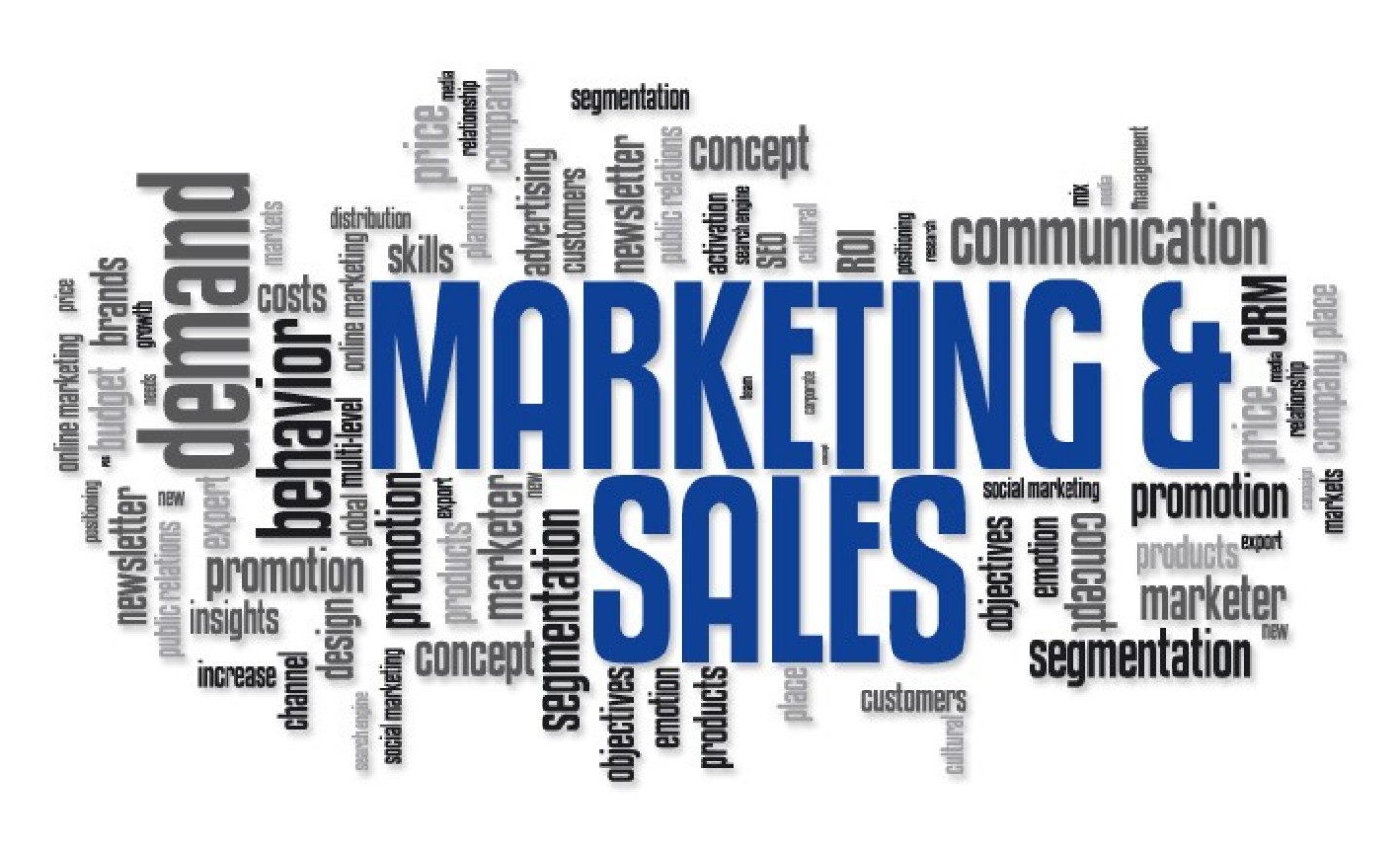
 Regardless of the size of your sales business, marketing means more than pamphlets or social media ads. It means your entire brand identity and even how you interact with clients. In today’s modern age of
Regardless of the size of your sales business, marketing means more than pamphlets or social media ads. It means your entire brand identity and even how you interact with clients. In today’s modern age of  You’re a discerning sales rep, so quick quips and industry jargon aren’t going to distract you from your objective. How does marketing affect your sales business? For individual sales reps operating their own LLCs or businesses, it can be the difference between a deal and a flop. Your personality is your brand and your brand is your business. Consider consulting several of our blog posts about
You’re a discerning sales rep, so quick quips and industry jargon aren’t going to distract you from your objective. How does marketing affect your sales business? For individual sales reps operating their own LLCs or businesses, it can be the difference between a deal and a flop. Your personality is your brand and your brand is your business. Consider consulting several of our blog posts about  ProSellus Growth Engineers is a company dedicated to growing your sales business using these revolutionary techniques – in a simplified way built for the sales rep in the field and the marketing professional in desperate need of some REAL leads. The future is already here, so you might already be old news. Email me at
ProSellus Growth Engineers is a company dedicated to growing your sales business using these revolutionary techniques – in a simplified way built for the sales rep in the field and the marketing professional in desperate need of some REAL leads. The future is already here, so you might already be old news. Email me at 
 A long time ago, you used to be able to “schmooze” your way to victory. Of course, you still have to schmooze, but today, it’s known as “networking” and “resource management.” Despite the fact that establishing value means establishing a relationship, you cannot close a deal on pure charisma and physician wooing anymore. You have to incorporate something else into the sales process:
A long time ago, you used to be able to “schmooze” your way to victory. Of course, you still have to schmooze, but today, it’s known as “networking” and “resource management.” Despite the fact that establishing value means establishing a relationship, you cannot close a deal on pure charisma and physician wooing anymore. You have to incorporate something else into the sales process:  One of the biggest mistakes sales reps make is focusing too narrowly on one aspect of a product or service instead of the broader meaning of the product or service in the context of the market. If you are selling a new piece of equipment for the OR, how does it affect the patient? The nurses? The Chief of Medicine? The EMTs or the administrative staff? By showcasing the fact that you have taken the time to consider the perspectives of people other than YOURSELF and the PHYSICIAN, you will not only establish value for the product or service you are selling, you will establish yourself as an effective and trustworthy sales rep, thus increasing your potential sales market.
One of the biggest mistakes sales reps make is focusing too narrowly on one aspect of a product or service instead of the broader meaning of the product or service in the context of the market. If you are selling a new piece of equipment for the OR, how does it affect the patient? The nurses? The Chief of Medicine? The EMTs or the administrative staff? By showcasing the fact that you have taken the time to consider the perspectives of people other than YOURSELF and the PHYSICIAN, you will not only establish value for the product or service you are selling, you will establish yourself as an effective and trustworthy sales rep, thus increasing your potential sales market.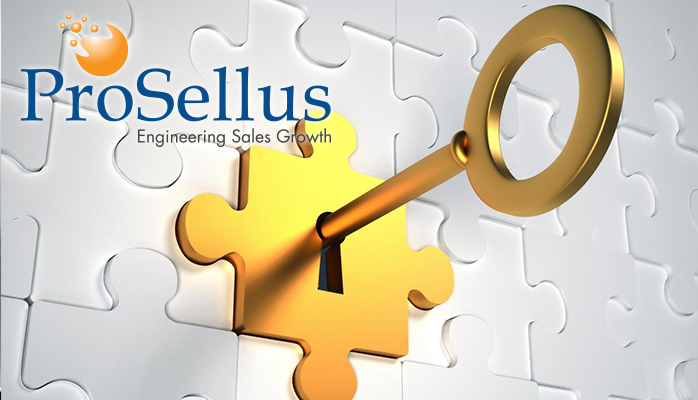 If you follow the steps in some of our
If you follow the steps in some of our 
 We have all seen Glengarry Glen Ross and that infamous scene where Alec Baldwin’s tells everyone to
We have all seen Glengarry Glen Ross and that infamous scene where Alec Baldwin’s tells everyone to 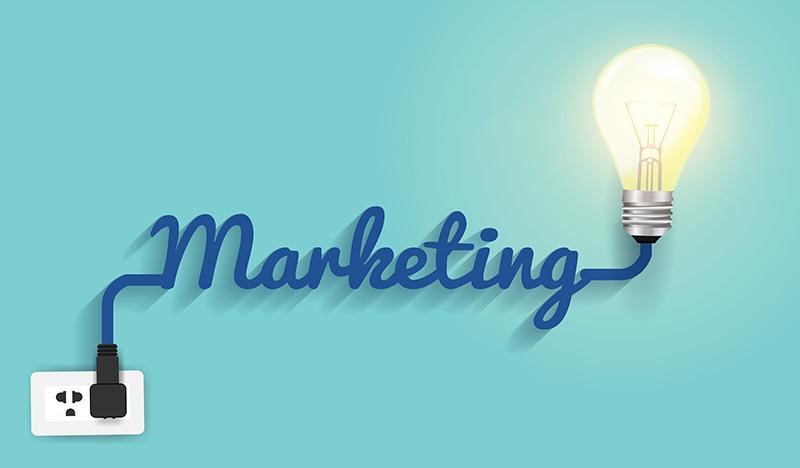 Let’s piggyback on that last paragraph. If your sales team is like the STEM department, what would that make the marketing team? If you guessed the social sciences and arts, you nailed it. In the same way that a society can’t function without its engineers and doctors, you need artists, writers, designers, and researchers to come full circle in the world.
Let’s piggyback on that last paragraph. If your sales team is like the STEM department, what would that make the marketing team? If you guessed the social sciences and arts, you nailed it. In the same way that a society can’t function without its engineers and doctors, you need artists, writers, designers, and researchers to come full circle in the world. Combine concrete numbers with creative problem solving solutions and you have a recipe for success. Your next question might be, so which came first –
Combine concrete numbers with creative problem solving solutions and you have a recipe for success. Your next question might be, so which came first – 




 Bringing Value and Creating a Brand go Hand in Hand
Bringing Value and Creating a Brand go Hand in Hand Creating the Brand, Selling the Mindset, Changing the Game
Creating the Brand, Selling the Mindset, Changing the Game
 Aside from pressure to hit quota, lack of time, and increasing competition, one of the major problems with how many medical sales reps approach their business practices is their own mindsets. Many reps focus on a
Aside from pressure to hit quota, lack of time, and increasing competition, one of the major problems with how many medical sales reps approach their business practices is their own mindsets. Many reps focus on a 